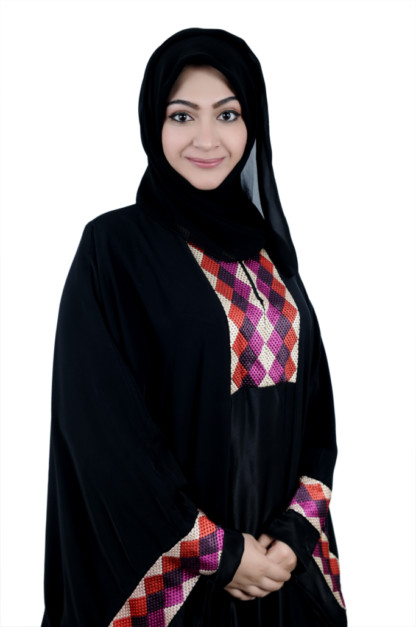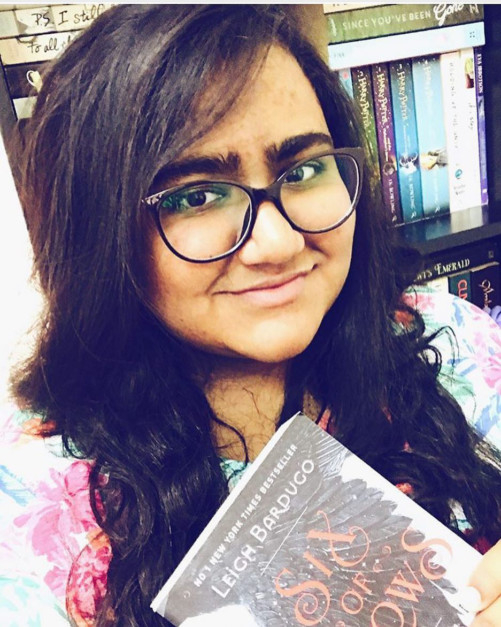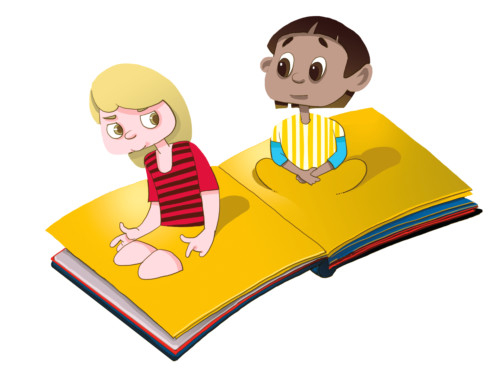
Power
Let them read to face the world
Children read all types of books, whether old or new. I think they should continue to read these books and parents should highlight the racism in them, so that children learn. It’s time for the new generation to be different. As they grow older, they will be able to spot it but as children it will be difficult to identify the tones of racism or slavery. They should read and learn as much as they can.
They might read a storybook, which has a racist backdrop, for example, but as they grow up, they know what is wrong and right. But at the same time, if you think about it, at that moment when they read a book which shows slavery or racism, they think the characters are happy as slaves and what we put in children’s minds stays for a very long time.
I agree that most readers aren’t aware of the hidden racism in story plots and other social issues in it. I, too, have read books where I found the characters are racist or chauvinistic. For example, some characters in Shakespeare novels are quite chauvinistic, which annoyed me.
The problem arises when parents don’t read the books themselves. Once they have read a book, only then should they give it to their children. I don’t think parents are very concerned by it, but it is quite a big issue as you will have children growing up behaving in a racist manner.
Despite all the challenges, I think children should read more books, which teach them better things. They should be taught to read from the very beginning, so that when they grow up they can face the world confidently.
From Ms Samama Reza
Literature student studying in Sharjah
Unaware
Parents buy books without knowing what topics they deal with
Sometimes, because we don’t know the context in the books that children are reading, we don’t realise how damaging they can be. Children love these books, but when you look deep into it, you realise they are not appropriate for children to read. What I would suggest to parents is that if they know what their child is going to read – even if it is a popular book – it would be helpful in selecting what they are reading.
Parents can also review the books online as there is plenty of information available. Then, they can make a judgement on whether they should allow their children to read it or not. Even I sometimes tend to ignore what they are reading, we presume all children’s books are teaching good morals and values, we take it for granted.
For example, my younger son was reading ‘Diary of a wimpy kid’. My elder son came to me and said I should not let him read the book. Once I took a look at it, I realised it was dealing with issues that were not age appropriate. So, I had to take the book away. But if you look at the cover, you simply see a cartoon of a boy and it seems quite innocent. My older son also loves books, especially cartoon books, so we get those that are educational. However, parents often just see a cartoon on the cover and buy books, without knowing what they are talking about. Manga, for example, isn’t only for children. It is also for adults and contains a lot of explicit content.
As for difficult social issues, yes it is better for parents to speak to their children about them.
From Mr Shabir Zain Al Deen
Librarian working in Dubai
Subtle
Regulate their reading and tell them what is wrong
I read a recent article on the same topic and was giving this issue quite a bit of thought. For example, I did notice the oompa loompas in Charlie and the Chocolate factory, they were African pygmies in earlier versions of the book. But now it has changed. It is not something that you would expect a child to notice and realise it is a major issue. I also don’t think it makes something like slavery normal in a child’s mind. I don’t think children should be stopped from reading these books even though these issues have been identified. They should certainly be told what these books contain. Only when they are exposed to what this is will they be able to understand what is going on in society.
Their reading can be regulated and they can be told what is wrong in the book – parents and teachers can tell them how society should be instead of how it is shown in the book.
But are parents and educators equipped to have this conversation? I think those who have read and understood the actual meaning or the underlying message of such books are and of course they would be telling their students or children about it. But if they don’t know what the issue is, this conversation won’t take place. In my own experience, my parents do take an interest in what I am reading and while I have not spoken to them about the underlying social issues that are the backdrop of a book, I do talk about the story line and what goes on in the story.
From Mr M. N. Vivekanandan
Pupil who runs a free neighbourhood library from his home
Perspective
Every story has a moral, it all depends on how we approach it
I have been in the education sector for 10 years and have mastered the art of making up stories as I rarely find books that help in educating and moulding a child’s mind. It’s very hard to find good books that inculcate good behaviour and good morals
We had a book festival recently at the playschool and they were basically just promoting Disney-style books and you wonder – why would you promote that at such a young age? At school, we cater to children up to five years old, so when you look at that age, you can’t really talk about romance. You can and should definitely talk about love, but more about the love between a father and child, between siblings for example.
The book I hate the most is Little Red Riding Hood, because when you are reading that out to a child it basically becomes okay for them to walk into a forest, it is okay for a wolf to eat a grandma - what are you trying to teach a child? They should have more moral stories or something that is more related to their lives.
One of my favourite books, for example, is ‘Come to the party’. It is based on a TV programme and children somehow relate to it quite a lot. It is a story of a child who has his birthday coming up and goes individually to each and every one of his friends to invite them to his party. It has such a good moral, where the child makes an effort to connect with his friends, his best friend wants to surprise him so he hides from him so it teaches you that surprising someone you love is good and talks about friendship. Not Beauty and the Beast or Cindrella. May be you could read it to children who are older, in primary school for example, even though I personally wouldn’t think even that should happen to be honest. They instead should be reading books that focus on vocabulary.
But right now, the media gets to children a lot quicker than any of us. My daughter, for example, is a big fan of the film ‘Frozen’. All I do is, I give her a different perspective, focussing on the sisterhood between Ana and Elsa and how one did not give up on the other regardless of all that they went through.
Similarly, sometimes children have experiences when they are scared and are unable to express themselves. Stories should allow them to process such moments.
As for racist undertones in characters in children’s books, or books that might have characters that could be slaves, everybody reads books and has a different perspective on it. Apart from the older storybooks, the recent minion craze is similar – where you have these characters that are just looking for a hero and are willing to do anything for it. They don’t care about being paid.
Despite all these stories, it all depends on how you teach the child. We talk about these in our meetings – how should we approach a particular children’s book? How can we do it differently? This is where training comes in and this is why we train teachers on how to read stories.
From Ms Shehzeen Abbas Manji Pirbhai
Curriculum coordinator and nursery school teacher living in Dubai
Gulf News asked: Do you read through story books before your children read them?
Yes
No
— Compiled by Huda Tabrez/Community Web Editor














